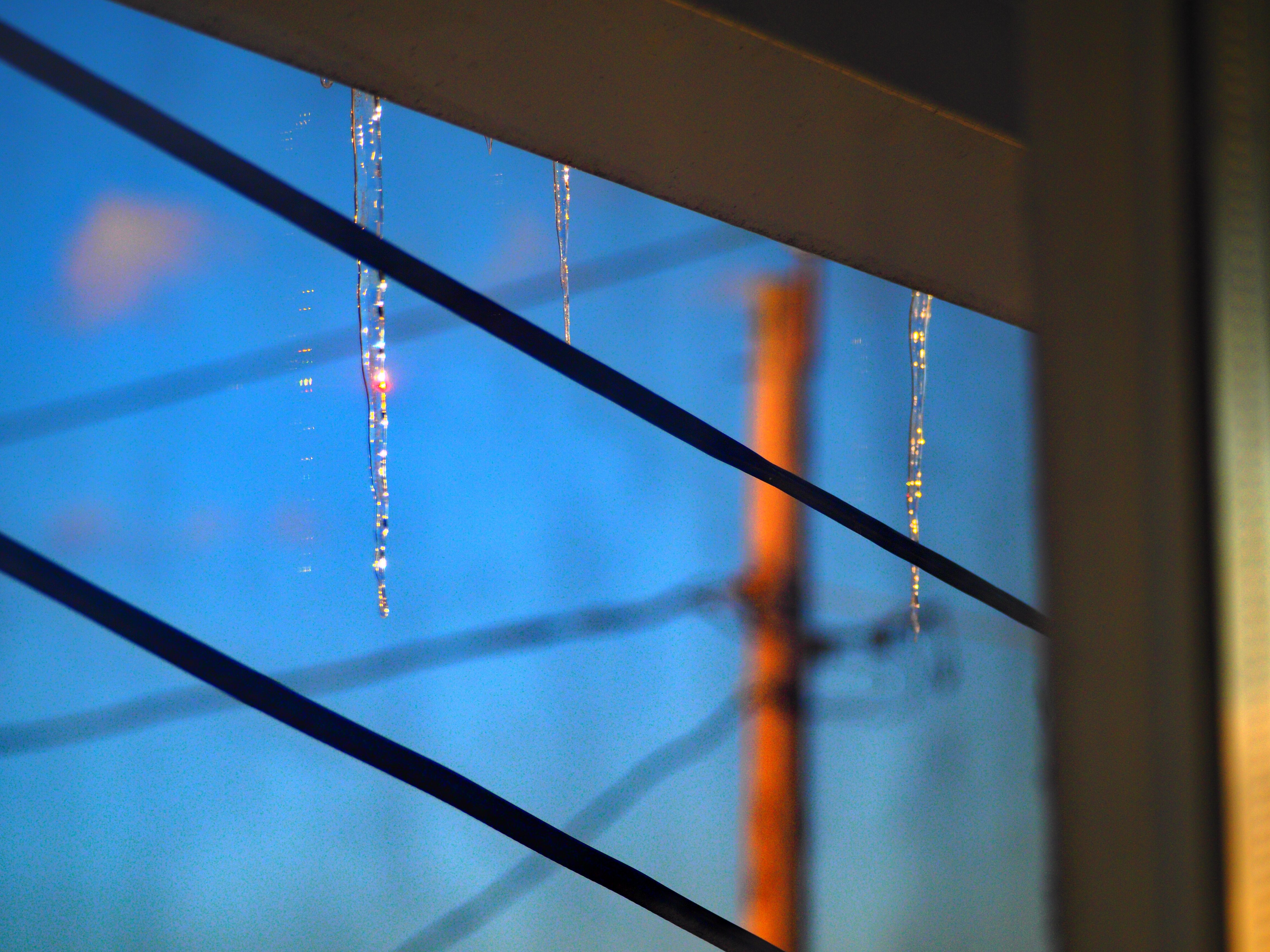-
Posts
44,789 -
Joined
Content Type
Profiles
Blogs
Forums
American Weather
Media Demo
Store
Gallery
Everything posted by LibertyBell
-

July 2025 Discussion-OBS - seasonable summer variability
LibertyBell replied to wdrag's topic in New York City Metro
so their equivalent of the Bermuda high stalled and created the marine heatwave and it's been happening every year for like 5-6 years now Chris? Wow, if that ever happened here.... -

July 2025 Discussion-OBS - seasonable summer variability
LibertyBell replied to wdrag's topic in New York City Metro
95-100 degrees even for us over here? -

July 2025 Discussion-OBS - seasonable summer variability
LibertyBell replied to wdrag's topic in New York City Metro
1942: A record deluge occurred at Smethport in northern Pennsylvania, with 30.7 inches in just six hours. The downpours and resultant flooding in Pennsylvania were devastating. The following U.S. records were set at Smethport, PA: rainfall in three hours: 28.50 inches, rainfall in 4 hours and 30 minutes: 30.70 inches and 12-hour rainfall: 34.30 inches.(Ref. Wilson Wx. History) 1942 - A record deluge occurred at Smethport in northern Pennsylvania, with 30.7 inches in just six hours. The downpours and resultant flooding in Pennsylvania were devastating. (David Ludlum) Over 30 inches of rain in 6 hours ?! What was going on..... this sounds worse than the flooding we just had in Texas..... -

July 2025 Discussion-OBS - seasonable summer variability
LibertyBell replied to wdrag's topic in New York City Metro
Records:Highs:EWR: 104 (2012)NYC: 101 (1953)LGA: 101 (2012)JFK: 100 (2013) Amazing heat during this timeframe in both 2012 and 2013. NYC in 1953-- this was the first of two historic 100+ degree heatwaves (we had 2 100+ degree days in each heatwave for a total of 4 for the season.) 1936 - The all time record high temperature for the state of Kansas was set when a 121-degree high temperature fried Fredonia. (US National Weather Service Wichita) 1936: This day marked the end of the hottest period on record for La Crosse, WI. From the 5th through the 18th, temperatures climbed to 90° or better everyday, and at or above 100° eight times. During this time six record temperatures were set and the average high temperatures for the period was 101.0°. (Ref. Wilson Wx. History) Crazy heat in 1936 continued.... Could you imagine 121 degrees in the middle of the country with all that flat land all around and no trees to be found? -

July 2025 Discussion-OBS - seasonable summer variability
LibertyBell replied to wdrag's topic in New York City Metro
I don't think most people mind the cloudiness in the morning if it keeps a lid on temperatures. Yesterday morning was like this too-- until the lid came off after 1 pm. -

July 2025 Discussion-OBS - seasonable summer variability
LibertyBell replied to wdrag's topic in New York City Metro
Yes, that really does happen a lot, but usually it's a dry heat we get after the frontal passage. I guess the dew point was so high that the small amount it fell after the frontal passage still kept it humid for most of the night. -

July 2025 Discussion-OBS - seasonable summer variability
LibertyBell replied to wdrag's topic in New York City Metro
Yes, because our atmosphere has become too thick Add more CO2 and more H2O to the atmosphere and you create a heat sponge that is very efficient at storing heat. To remedy this situation we'd have to remove both gasses from the atmosphere and thin our atmosphere enough so that it can't store heat that well. -

July 2025 Discussion-OBS - seasonable summer variability
LibertyBell replied to wdrag's topic in New York City Metro
Yep and it looks like we'll get a second surge of cooler drier weather early next week. -

July 2025 Discussion-OBS - seasonable summer variability
LibertyBell replied to wdrag's topic in New York City Metro
How does it get that hot without the sun? Most of the day was very bearable, no sun at all and very comfortable right up until 1 pm or so and then the sun came out and there was a surge of heat late in the day. And didn't we have a cold front come through-- all the forecasts were for a cooler night as the front passed and lower humidity and I even saw the word *refreshing* being mentioned. July 5, 1999 was in a completely different class because it was over 100 that entire afternoon, as late as 6 PM. Yesterday was more a case of a very late surge of heat, basically at the last moment. -

July 2025 Discussion-OBS - seasonable summer variability
LibertyBell replied to wdrag's topic in New York City Metro
it got uncomfortable starting around 2-- I actually thought we might not hit 90 with all the dark overcast around all morning and even early this afternoon. -

July 2025 Discussion-OBS - seasonable summer variability
LibertyBell replied to wdrag's topic in New York City Metro
it's absolutely horrendous but not in the top 3 hottest days of the summer. That day last week was worse. This morning up until early afternoon (around 1 PM) it wasn't bad. -

July 2025 Discussion-OBS - seasonable summer variability
LibertyBell replied to wdrag's topic in New York City Metro
it wasnt actually very hot today, it's just that it's not cooling down like it usually does in the evening-- it's all that damn humidity -

July 2025 Discussion-OBS - seasonable summer variability
LibertyBell replied to wdrag's topic in New York City Metro
I have two spiders trying to steal the mail right out of my mailbox. I hate big bug weather -

July 2025 Discussion-OBS - seasonable summer variability
LibertyBell replied to wdrag's topic in New York City Metro
Yes it shouldn't be that hard to do, many of the personal weather stations on wunderground update every 5-10 seconds. -

July 2025 Discussion-OBS - seasonable summer variability
LibertyBell replied to wdrag's topic in New York City Metro
Looks like July 2011 was also very hot-- it seems like the hottest SST happen in months that have extended extreme heatwaves with westerly flow followed by onshore flow that brings the heated waters that are offshore because of that westerly flow back closer to the beaches when the onshore flow kicks in. ATLANTIC CITY, N.J. (CBS) - The ocean water temperature this week is in the record books. Wednesday's 83-degree measurement at the Atlantic City Marina (the National Weather Service puts the exact temperature at 83.3 degrees) broke the warmest-ever mark of 83.1 degrees, set in July 2011. You don't even have to dip a toe in the water to feel its heat: -

July 2025 Discussion-OBS - seasonable summer variability
LibertyBell replied to wdrag's topic in New York City Metro
There is a way to do it, simply look at the thermometer and jot down the temperature. I did this during the summer of 1993 almost every day during that big 10 day heatwave lol. -

July 2025 Discussion-OBS - seasonable summer variability
LibertyBell replied to wdrag's topic in New York City Metro
Excellent article Tony! Reading this makes me think we need both very hot westerly winds AND onshore flow. First the very hot westerly winds for several days to create a long heatwave even though the offshore flow causes upwelling here it heats up the ocean further offshore. And then an onshore flow to bring that heated ocean surface closer to shore? It's so warm, it set a record in Atlantic City, where the water temperature soared to the mid-80s on Thursday and early Friday. This weekend, your Weather Authority says to plan for ocean water in the upper 70s. The water is much, much warmer for a few reasons. South and east of our shores, the Atlantic Ocean has been much warmer than average for a while. Usually, 80-degree ocean water stops around the Outer Banks in North Carolina. But lately, it has extended much farther north. But our shores have not been able to tap into that warm water because of our air flow. Winds have been coming down from the north or blowing along the coastline a lot this summer. That airflow pushes the top layer of sun-warmed ocean water away from our beaches. When it's pushed away, colder non sun-warmed water comes up to take its place. If you want to learn more, that process is called upwelling, and that's what kept the ocean water chilly this summer in the 60s. Even though there were a few days in July and early August when the water soared into the 70s, it didn't last. Well, that is, until mid-August. The 10-day stretch of 90s earlier this month led to water warming up at deeper depths. Then, this week, ocean currents brought that 80-degree water even closer to our shores. What got the 80s here were the airflow winds that started coming up from the south. This created an on-shore airflow that helped push that pool of 80-degree water right to our shores. That super warm water is also pretty warm deep below its surface. So, as the warmest top water gets pushed toward us, warm water comes up to take its place. This is what will keep our ocean water nice and warm in the 70s this weekend. Highs in the 90s are also helping. In and around Philly will stay in the 90s through Wednesday. Down the shore, we're in the mid 80s this weekend says your Weather Authority. Late next week, our air flow will shift again, which will start pushing away some of that warmer water. Expect water temperatures in the lower 70s next weekend. -

July 2025 Discussion-OBS - seasonable summer variability
LibertyBell replied to wdrag's topic in New York City Metro
It would be interesting to see how long it takes the ocean to recover from a bout of westerly winds. It probably recovers more quickly later in the season, so if we have 100 degree heat in the latter third of July, the SST would rise more quickly once it ended? -

July 2025 Discussion-OBS - seasonable summer variability
LibertyBell replied to wdrag's topic in New York City Metro
Thanks, I wonder if a marine heatwave like what's happening east of Japan are possible here, because we're both on the western edge of a large ocean. -

July 2025 Discussion-OBS - seasonable summer variability
LibertyBell replied to wdrag's topic in New York City Metro
Thanks, it would be interesting to see how quickly the ocean recovers from upwelling from these triple digit heatwaves. It seems to have done so relatively quickly this year. I wonder what the peak SST were in a summer like 2010 that was dry and hot most of the summer. 2011 peak heat was higher than 2010 but we switched to a wetter pattern in August with more onshore flow so maybe the SST were warmer in 2011 than they were in 2010? -

July 2025 Discussion-OBS - seasonable summer variability
LibertyBell replied to wdrag's topic in New York City Metro
it would be interesting to see what summers had our highest SST and in which month they occurred. -

July 2025 Discussion-OBS - seasonable summer variability
LibertyBell replied to wdrag's topic in New York City Metro
Maybe JFK hit 93 like I did today.



